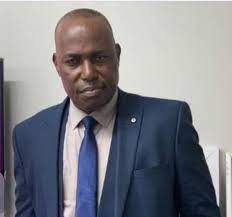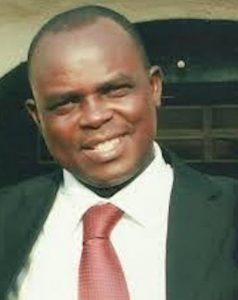The 19th All Nigeria Editors Conference (ANEC-2023) , which ended in Uyo, capital of Akwa Ibom state at the weekend has opened the eyes of the aristocracy of the Nigerian media to three issues that may have challenged some myths about development strategies in Nigeria. The first issue is that federalism matters a great deal, if we must make progress in this complex federation. The second issue is that it may not be true, after all as often claimed that government has no business in business. The third issue is that management of succession plan and its discontents within the context of internal democracy may be another way to make democracy safe in Nigeria.
I was briefly part of the Editors’ Conference in Uyo where I was also among fifteen Senior Editors and Managers who were decorated as Fellows of the Nigerian Guild of Editors, (the highest honour of the elite Club) at the weekend. The Guild also inducted 39 new members into its fold at the same Conference in Uyo.
So, we went to Uyo, discussed issues in digital technologies that have disrupted and threatened the business model of digital journalism and how managers can cope with such existential threats at this time.But some of us also noticed some strangeness in the polity: that democratic governance can trigger development too if our elected leaders can work differently by ensuring that they commit public funds to work in public interest.
Although we are editors, managers of newsroom operations, now enmeshed in the business genre of journalism, we are all reporters who nose for news as our essential commodity. What is this product called news? It is simply something that is unusual, odd, extraordinary, bizarre about people, places and events. One classic definition most journalists can’t easily forget is that news is something, somebody somewhere is trying to hide, the rest is public relations or advertising. This is what we do in public interest. This is what we have to pursue well for advertisers to patronise our products and platform owners to link us to sources of wealth.
And so I saw at the weekend in Uyo some unusual features that we need to report to Nigerians to study carefully. It is simply something unusual about one of the 36 states of the federation. It is about some silent paradigm shift in development strategy that we need to comment on at this time that some state actors spend more money on live coverage of meretricious projects that people hardly need, after all. It is about a state we can use to justify long campaigns for restoration of the pearl (federalism) we lost to the ‘soldiers of fortune’ in 1966. It is about Akwa Ibom State that is demonstrating in clear terms that claims by some motivational speakers that government has no business in business isn’t true, after all. The Akwa Ibom state development history we began to deconstruct from the airport to the hotels we used at the weekend is beginning to show that character, which most of our leaders lack, is the real paradise we lost and we need to regain for us to begin the race to lead Africa and the black race as the iconic Nelson Mandela predicted before he flew away.
Here is the thing, the leadership succession arrangement that has produced the fourth governor of Akwa Ibom State since 1999 is generally believed to be the main critical success factor we have seen in the State of real aquatic splendour.
What is the drift here? Akwa Ibom state today stands out as one major and clear success story of a state that can be used to justify ‘The Guardian’s ‘Federalist Papers’ to be presented to the public on Tuesday November, 28, 2023. The ‘Federalist Papers’ stem from a serial of 61 Editorials titled, ‘Federalism Is The Answer, After All’the newspaper wrote on Federalism in 61 weeks from 2020 to 2022.
What I saw in Akwa Ibom state at the weekend actually reinforced my conviction that Federalism really matters and it will encourage competition within the six geo-political zones as it did during the regional governments that the military truncated on the day they struck in 1966.
The brass tacks: On May 28 this year, we woke up to a rude shock of unveiling of a fraudulent national carrier, Nigeria Air that the Buhari administration promised the nation for eight years. On that day, the outgoing Minister of Aviation the then Hadi Sirika commissioned a re-painted Ethiopian airplane as Nigeria Air’s. That was a day before leaving office as Aviation Minister. They got the naive President Buhari to commission a fake aircraft just repainted from a thriving Ethiopian airline. Till the present, after a mere questioning by the State Security Department’s operatives, the nation hasn’t been told what to do with the millions of dollars Sirika claimed to have spent on the fake national carrier the Buhari administration promised the nation.
But today Akwa Ibom state that once built an airport to ease air travels to the state has a stake in an airline, Ibom Air that has taken the nation by storm. And so, Nigerian Editors flew Ibow Air to Uyo last Tuesday and landed in a very clean Uyo airport built by the Akwa Ibom State Government. What is more, they saw what a serious government should do with road infrastructure: six-lane clean and solid road infrastructure to their classy Ibom Icon Hotel and Golf Resort designed and built by former Governor Victor Atta, an architect who every educated citizen of the state knows designed the modern Akwa Ibom development agenda within the construct of urban renewal and rural infrastructure development.

You fly into the city in their vessel, check into their world-class hotels in Uyo or Ikot- Epene where you will get another good hotel built by Governor Akpabio and run by Four-Point by Sheraton. The road to Ikot Ekpene from Uyo is also of good quality. Meanwhile, from Ibom Icon Hotel and Gold Resort, you can travel by any plying vessels to Calabar, capital of Cross River State and Malabo, capital of Equatorial Guinea. What do we need to develop thriving tourism industry other than what Akwa Ibom’s leadership succession arrangement has produced: good airport, good airline, excellent road infrastructure and good hospitality outfits (hotels) and allied facilities?
Besides, the weekend ANEC-2023 has been the only state where Editors have held their annual and biennial meetings and conferences without the state governor insisting on guided projects inspection during the conference. Most of the time, the Editors just laugh about celebration of mediocrity by many state government officials. In Akwa Ibom state, you don’t need project inspection before you notice robustness of even good inner-city link roads. And most of the critical infrastructure pieces were not commissioned with fanfare that we see daily with some under-achievers who spend more money on television live coverage of even refurbished school classrooms.
Most citizens of the state have enough civic competence to understand that Governor Attah the resource-control hero during the Obasanjo administration actually began the development agenda with a clear blueprint of where they want Akwa Ibom to be. Most people in the state also understand that not even the controversial party primary that set off the Godswill Akpabio’s government from 2007-2015 could discourage the uncommon achiever’s commitment to his able successor’s development plans. Akpabio who was generally believed to be a big spender and too liberal with state funds was succeeded by a more moderate spender,Emmanuel Udom who also committed himself to the development agenda of his predecessor. Attah and Akpabio built an airport, Udom exploited a public-private-partnership arrangement to float an airline that can be daubed a ‘state carrier’. And when you get to their airport they are already expanding to an international standard to include international flights under Governor Umo Eno, you will see these lines from his inauguration speech on an electronic board at the airport departure hall:
“I will like to reiterate that I cannot achieve or actualise this vision alone. This is a collective responsibility and I am very sure all of you patriotic citizens of Akwa Ibom State will join hands with me to further push the developmental strides as handed down by my worthy Predecessor…”
This is how their leaders’ minds work in the state. They all regard Attah as their Lee Kuan Yew and they would like to plan succession in such a way that they don’t encourage what Benjamin Franklin an American icon and a founding father called, “great talkers and little doers”. Politics of bitterness and curious vengeance can be found in some states including one where a successor has marked out more than 100 monuments and projects of his predecessor to demolish without considering the consequences to the state’s purse.
So a deliverable from this weekend’s road note is that what is happening in Akwa Ibom state is a clear testimony that restoration of federalism we lost in 1966 can set the tone for development of various geo-political zones in the country.
It is beyond rhetoric that the goal of democracy is to give the people a voice in the decisions, which impact their lives. But how does this work in practice, especially in countries where ‘The People’ mostly live in different regions of the country, and are made up of different ethnic, religious or linguistic groups? These different people might have different ways of doing things. One possible political solution for these diverse groups of people who share the same country, but live in different parts of it, is Federalism. It is a strategic compromise that divides powers and responsibilities between two main levels of government: a central or union level, and a state or regional level. That is what the Akwa Ibom example is teaching us today: that we need to restructure this dysfunctional federation today so that federating units can be competitive again in their federalist models such as we enjoyed before the evil unitary system the military government imposed on the country in 1966.
















